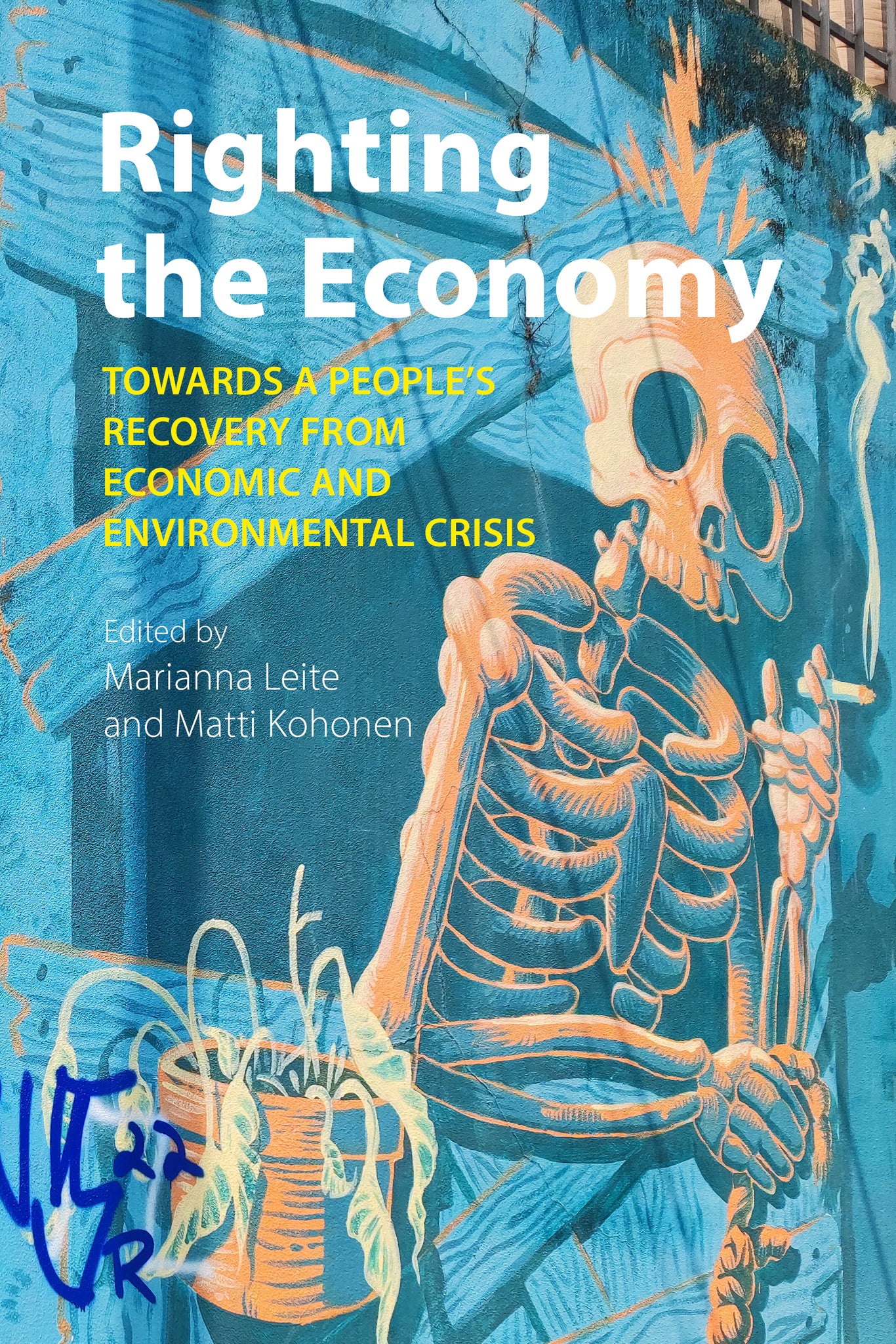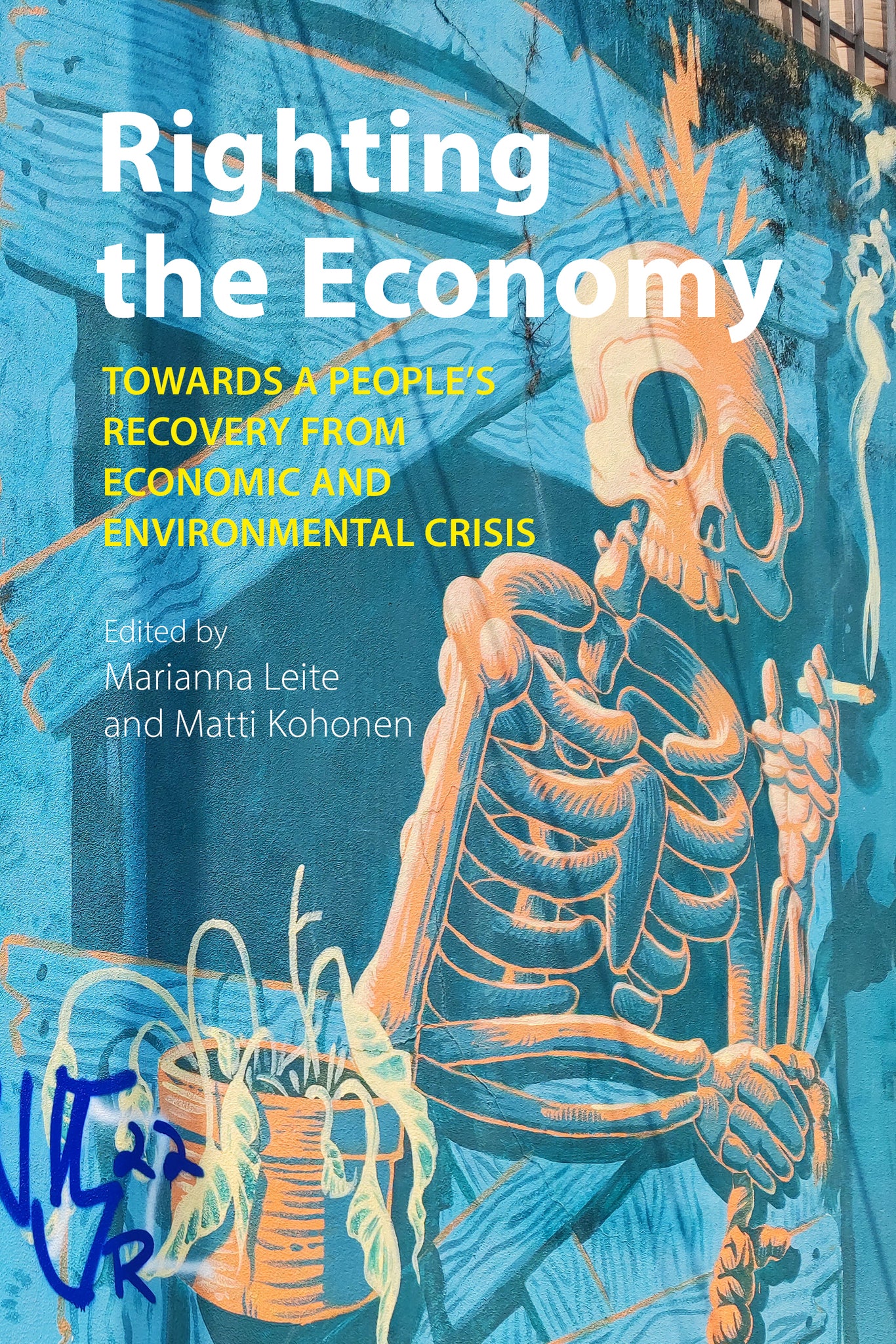We're sorry. An error has occurred
Please cancel or retry.
Righting the Economy

Some error occured while loading the Quick View. Please close the Quick View and try reloading the page.
Couldn't load pickup availability
- Format:
-
25 January 2024

Human rights and economics are not often spoken about in the same breath. Yet increasingly, human rights actors are calling for a shift towards a rights-based or human-rights economy. One that puts the economy truly at the service of communities contending with extreme social and economic inequality, climate catastrophe and corporate abuses.
The economies we live in structure our daily experiences and represent systems which can profoundly affect our ability to enjoy our rights to decent work, adequate healthcare, political participation, freedom from violence and more. This book systematizes academic and practitioners’ analyses and experiences, drawing from different epistemologies, literatures and case studies, to flesh out what a rights-based economy would look like, and the tools and actions – economic, legal, environmental and social – needed to get there.

POLITICAL SCIENCE / Public Policy / Economic Policy, Political economy, SOCIAL SCIENCE / Discrimination, POLITICAL SCIENCE / Human Rights, POLITICAL SCIENCE / Civics & Citizenship, BUSINESS & ECONOMICS / International / General, POLITICAL SCIENCE / Civil Rights, Human rights, civil rights, Social discrimination and social justice, International economics

This stimulating book calls for the disruption of the forces that produce economies that manifestly fail to fulfil human rights and the reassembly of economies that will fulfil these rights, drawing on human rights norms and institutions, and a wide range of innovative ideas about economic alternatives. It offers new thinking for both practitioners and academics and will be indispensable reading for courses on human rights, political economy, and social and economic policy.
Foreword by Tomás Pascual Ricke, Ambassador and Director of Human Rights, Ministry of Foreign Affairs of Chile
Human Rights Economy for People and the Planet: Framing the Contours of an Approach, Jyoti Sanghera
1. Introduction: what it means to “right the economy” and why we need it now
Marianna Leite and Matti Kohonen
Part I Framing the economy
2. Towards a Rights-Based Economy: post-growth economics and the future of welfare
Olivier De Schutter
3. The Center for Economic and Social Rights’ journey to advance a rights-based economy
Center for Economic and Social Rights
4. Business and human rights: from “tokenism” to “centring” rights and rightsholders
Surya Deva and Harpreet Kaur
5. A human rights economy approach as the basis for a global fiscal architecture
Attiya Waris
6. Macroeconomic policy and development agenda for a Rights-Based Economy
Pedro Rossi
7. Financial complicity and human rights: exploring the legal and policy landscape of responsibility for sovereign debt
Celine Tan and Rafael Quintero Godinez
Part II Transforming the economy
8. Illicit financial flows, tax havens and the African Commission on Human and Peoples’ Rights
Asha Ramgobin
9. Social and solidarity economy as an alternative economy for the protection of human rights Ilcheong Yi
10. Judicial enforcement of socio-economic rights as a way to challenge neoliberalism: post-2008 austerity in Europe
Kári Hólmar Ragnarsson
11. Health and human rights: what are the lessons from the Covid-19 pandemic?
Jasmine Gideon and Kate Bayliss
12. From recovery to transformation? Assessing Argentina’s Covid-19 economic response through a feminist lens
Magalí Brosio and Edurne Cárdenas
13. A feminist and decolonial global Green New Deal: principles, paradigms and systemic transformations
Bhumika Muchhala
14. Conclusion: “righting the economy” and building on plural and decolonial models to curtail the effects of negative corporate practice
Matti Kohonen and Marianna Leite



